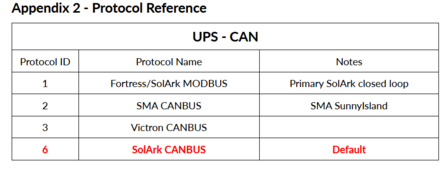robby
Photon Vampire
- Joined
- May 1, 2021
- Messages
- 4,129
Great work my friend this is a fantastic piece of gear that was really needed.@robby Yes, you and do that too, use your eFlex batteries on e.g. can0 and also hook up your EG3LL battery on can1 and hook up the inverter on can2. Or RS485 or whatever is supported by the inverter or EG4LL.
Does your software support the BMS in the eFlex?



